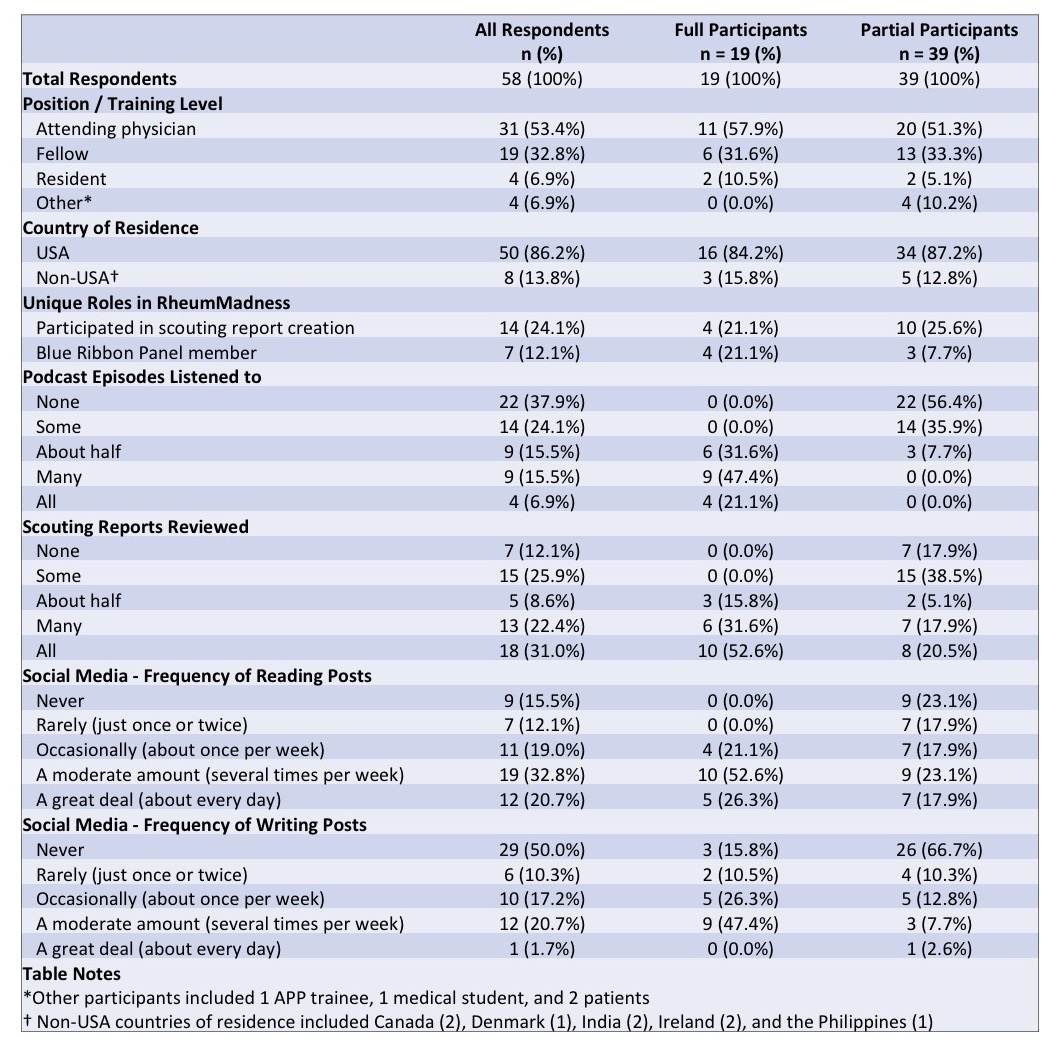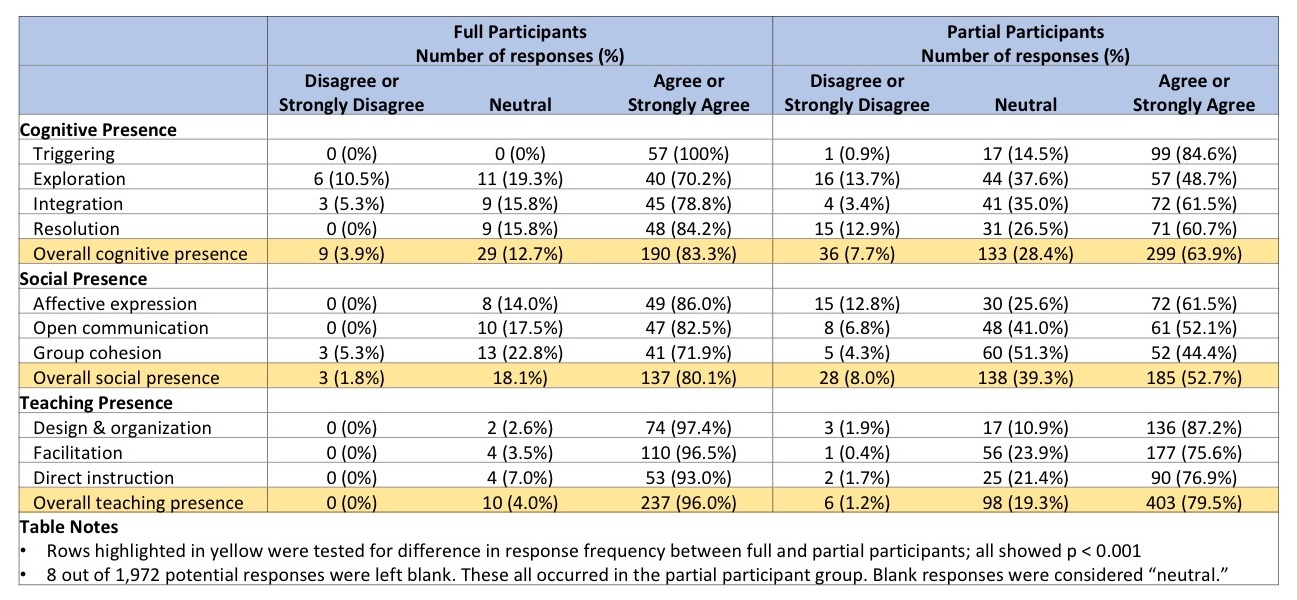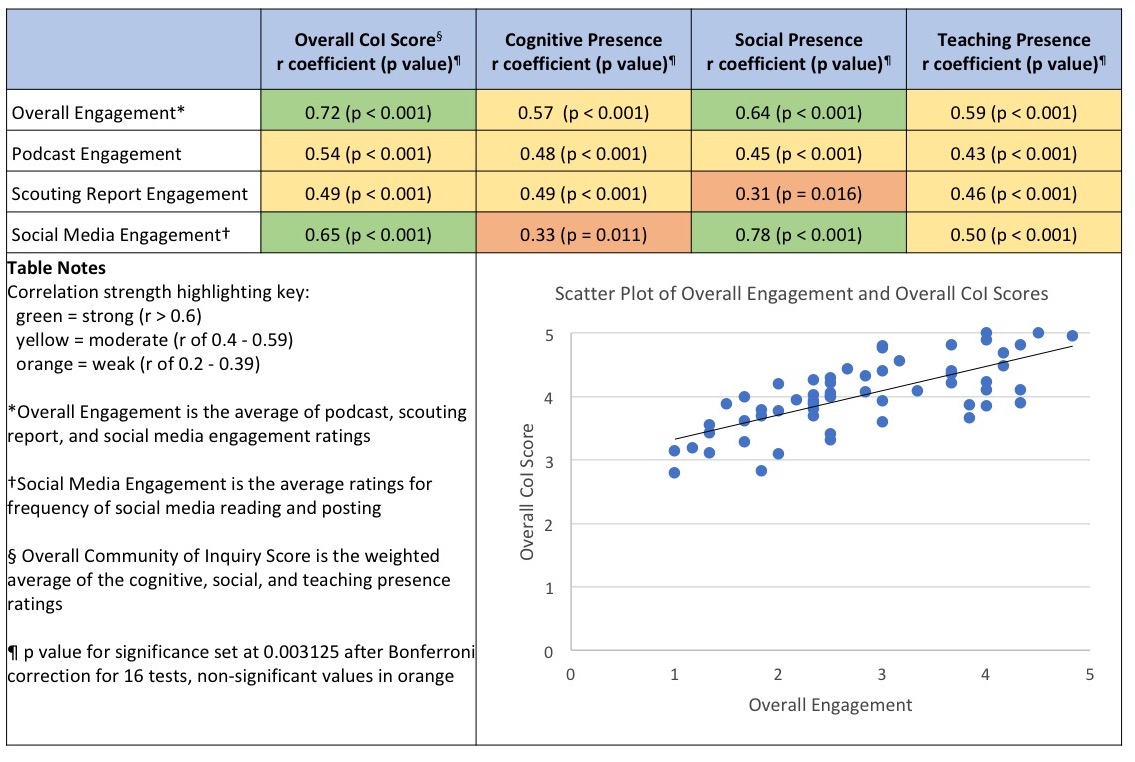Session Information
Session Type: Abstract Session
Session Time: 2:00PM-2:15PM
Background/Purpose: RheumMadness is an online collaborative learning experience in which rheumatology concepts compete as teams in a tournament. The Community of Inquiry (CoI) framework describes the cognitive, social, and teaching “presences” in a social constructivist learning activity. This study analyzes participant engagement and the CoI presences in the first year of RheumMadness.
Methods: RheumMadness 2021 included 16 concepts in a single-elimination bracket, scouting reports reviewing each concept created by >40 fellows from 14 fellowship programs, and a podcast (15 episodes). Participants completed brackets predicting the outcome of tournament matchups (decided by 7 judges) and discussed RheumMadness on social media (Facebook/Twitter). Web-based analytics tracked engagement with each element in RheumMadness. A Qualtrics survey was emailed to participants and shared on social media to assess engagement with RheumMadness and perceptions of the CoI presences. CoI questions were adapted from a validated 34-item CoI survey. Respondents were categorized as “full participants” if they listened to at least half the podcast episodes, read at least half the scouting reports and read social media posts at least once per week; the remainder were “partial participants.” Survey data were analyzed with Fisher’s exact test and Pearson’s correlation for linear relationships.
Results: 105 brackets were submitted in the tournament. There were 1,542 scouting report page views (96 per report) and 2,449 podcast downloads (163 per episode). The Facebook group accrued 81 members. On Twitter, there were 486 tweets from 105 users, generating 2,312,386 potential Twitter impressions.
The post-survey was sent to 100 participants who submitted a bracket; the remaining 5 brackets were from the study team. Of recipients, 58/100 (58%) responded; 19 (32.8%) were full and 39 (67.2%) partial participants. Demographics and reported engagement are shown in Table 1. CoI results are shown in Table 2. The majority of full and partial participants indicated agreement with prompts relating to the cognitive, social, and teaching presence; agreement was more frequent among full participants in each presence (p< 0.001).
Correlation analyses are shown in Figure 1. There was a significant, strongly positive correlation between overall engagement with RheumMadness and overall CoI survey scores (r=0.72, p< 0.001). The cognitive presence showed a moderate correlation with scouting report and podcast engagement but no significant correlation with social media. The social presence correlated strongly with social media and moderately with podcast engagement but no significant correlation with scouting reports. The teaching presence correlated moderately with all components.
Conclusion: RheumMadness successfully engaged learners in an online learning community. Most participants agreed that RheumMadness fostered meaningful cognitive, social, and teaching presences, especially among full participants. The cognitive presence was fostered primarily by didactic elements – the scouting reports and podcast. The social presence was fostered by social media and, to a lesser extent, the podcast. All elements contributed to the teaching presence.
To cite this abstract in AMA style:
Leverenz D, Udupa A, Saygin D, Katz G, Witt C, Criscione-Schreiber L, Sparks M. RheumMadness: Creating an Online Community of Inquiry [abstract]. Arthritis Rheumatol. 2021; 73 (suppl 9). https://acrabstracts.org/abstract/rheummadness-creating-an-online-community-of-inquiry/. Accessed .« Back to ACR Convergence 2021
ACR Meeting Abstracts - https://acrabstracts.org/abstract/rheummadness-creating-an-online-community-of-inquiry/



